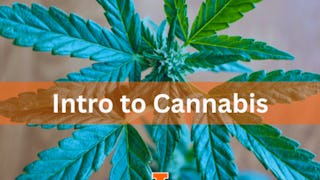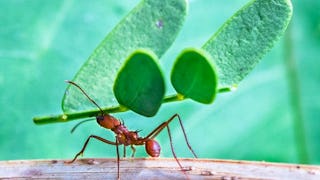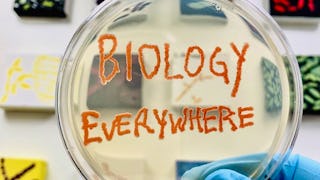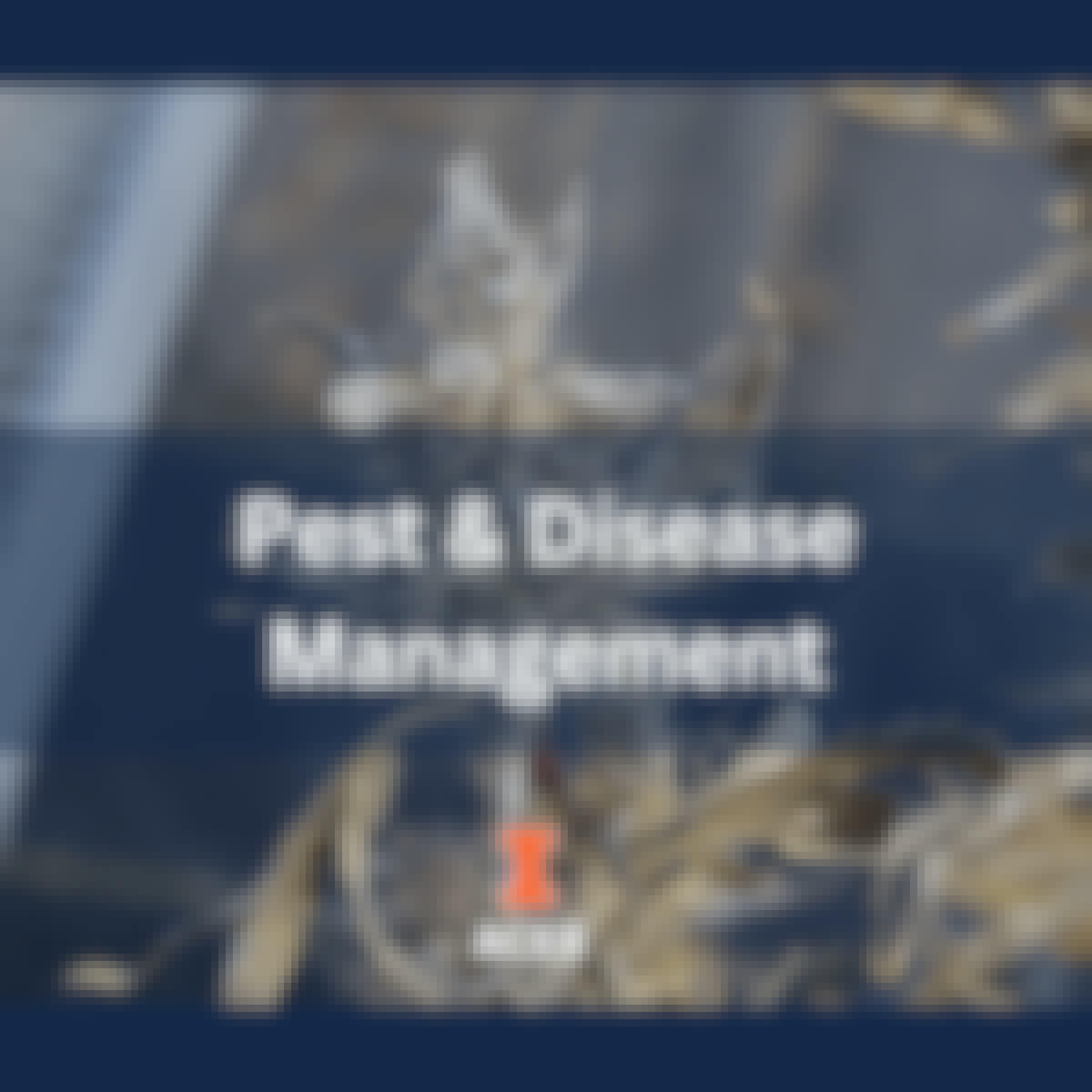- Browse
- Botany
Botany Courses
Botany courses can help you learn plant biology, ecology, taxonomy, and the anatomy of various species. You can build skills in identifying plants, understanding their growth processes, and applying techniques for plant propagation and cultivation. Many courses introduce tools like microscopes for examining plant cells, field guides for species identification, and software for analyzing ecological data, which enhance your ability to study and conserve plant life effectively.
Popular Botany Courses and Certifications
 Status: PreviewPreviewT
Status: PreviewPreviewTTel Aviv University
Skills you'll gain: Scientific Methods, Biology, Research, Biochemistry, Life Sciences, Psychology, Molecular Biology, Environment, Physiology, Cell Biology
4.8·Rating, 4.8 out of 5 stars1.9K reviewsBeginner · Course · 1 - 3 Months
 U
UUniversity of Illinois Urbana-Champaign
Skills you'll gain: Chemistry, Taxonomy, Production Process, Biochemistry, Biology, Anatomy, Laboratory Research, Scientific Methods
4.8·Rating, 4.8 out of 5 stars26 reviewsBeginner · Course · 1 - 3 Months
 Status: Free TrialFree TrialU
Status: Free TrialFree TrialUUniversity of Florida
Skills you'll gain: Land Management, Climate Change Mitigation, Sustainable Development, Sustainable Systems, Environment and Resource Management, Water Resources, Sustainability Standards, Climate Change Adaptation, Water Resource Management, Environment, Natural Resource Management, Plant Operations and Management, Systems Thinking, Environmental Science, General Science and Research, Spatial Analysis, Socioeconomics, Research, Research Methodologies, Biology
4.8·Rating, 4.8 out of 5 stars108 reviewsIntermediate · Specialization · 3 - 6 Months
 Status: Free TrialFree TrialR
Status: Free TrialFree TrialRRice University
Skills you'll gain: Biology, Environment, Microbiology, Environmental Science, Life Sciences, Environmental Issue, Sustainable Development, Natural Resource Management, Physiology, Molecular Biology, Taxonomy, Cell Biology, Anatomy, Climate Change Adaptation, Estimation, Scientific Methods, Climate Change Mitigation, Experimentation
4.8·Rating, 4.8 out of 5 stars278 reviewsBeginner · Specialization · 3 - 6 Months
 Status: Free TrialFree TrialU
Status: Free TrialFree TrialUUniversity of Colorado Boulder
Skills you'll gain: Molecular Biology, Biochemistry, Human Development, Biology, Life Sciences, Environment, Chemistry, Cell Biology, Environmental Issue, Child Development, Environmental Science, Environmental Resource Management, Music, Biotechnology, General Science and Research, Decision Making, Natural Resource Management, Liberal Arts, Oncology, Sustainable Development
4.5·Rating, 4.5 out of 5 stars386 reviewsBeginner · Specialization · 3 - 6 Months
 Status: Free TrialFree TrialR
Status: Free TrialFree TrialRRice University
Skills you'll gain: Human Musculoskeletal System, Anatomy, Endocrinology, Orthopedics, Kinesiology, Physiology, Neurology, Medical Terminology, Cell Biology, Biology, Chemistry, Clinical Practices, Sports Medicine, Physical Therapy, Molecular, Cellular, and Microbiology, Life Sciences, Lifelong Learning
4.7·Rating, 4.7 out of 5 stars166 reviewsIntermediate · Specialization · 3 - 6 Months
What brings you to Coursera today?
 Status: Free TrialFree TrialU
Status: Free TrialFree TrialUUniversity of Florida
Skills you'll gain: Land Management, Environment and Resource Management, Plant Operations and Management, Sustainable Systems, Water Resources, Natural Resource Management, Environment, Environmental Science, Biology
4.8·Rating, 4.8 out of 5 stars20 reviewsIntermediate · Course · 1 - 4 Weeks
 Status: Free TrialFree TrialU
Status: Free TrialFree TrialUUniversity of Toronto
Skills you'll gain: Bioinformatics, Network Analysis, Biostatistics, Molecular Biology, Analysis, Data Visualization Software, Database Software, Health Informatics, Data Analysis, Data Synthesis, Life Sciences, Statistical Methods, Data Mining, Exploratory Data Analysis, Technical Communication, Unsupervised Learning, Data Processing, Tree Maps, Scientific Visualization, Databases
4.7·Rating, 4.7 out of 5 stars2.1K reviewsBeginner · Specialization · 3 - 6 Months
 Status: Free TrialFree TrialN
Status: Free TrialFree TrialNNational Academy of Sports Medicine
Skills you'll gain: Nutrition and Diet, Nutrition Education, Health And Wellness Coaching, Sports Medicine, Health Promotion, Preventative Care
4.5·Rating, 4.5 out of 5 stars76 reviewsBeginner · Course · 1 - 4 Weeks
 Status: PreviewPreviewU
Status: PreviewPreviewUUniversity of Illinois Urbana-Champaign
Skills you'll gain: Infection Control, Microbiology, Epidemiology, Preventative Care, Environmental Science, Environmental Monitoring
4.4·Rating, 4.4 out of 5 stars67 reviewsBeginner · Course · 1 - 4 Weeks
 Status: PreviewPreviewA
Status: PreviewPreviewAAmerican Museum of Natural History
Skills you'll gain: Life Sciences, Biology, Environmental Science, Environment, Biochemistry, Physiology, Hydrology, Environmental Issue, Anatomy, Water Quality, Behavioral Health, Research
4.8·Rating, 4.8 out of 5 stars594 reviewsBeginner · Course · 1 - 3 Months
 Status: PreviewPreviewS
Status: PreviewPreviewSStanford University
Skills you'll gain: Grant Writing, Peer Review, Technical Writing, Technical Communication, Writing, Scientific Methods, Journals, Editing, Grammar, Research, Proofreading, Healthcare Ethics, Media and Communications
4.9·Rating, 4.9 out of 5 stars9.8K reviewsBeginner · Course · 1 - 3 Months
Searches related to botany
In summary, here are 10 of our most popular botany courses
- Understanding Plants - Part I: What a Plant Knows: Tel Aviv University
- Introduction to Cannabis: University of Illinois Urbana-Champaign
- Agroforestry: University of Florida
- Introduction to Biology: Ecology, Evolution, & Biodiversity: Rice University
- Biology Everywhere: University of Colorado Boulder
- Human Anatomy & Physiology I: Rice University
- Agroforestry III: Principles of Plant and Soil Management: University of Florida
- Plant Bioinformatic Methods: University of Toronto
- Plant-Based Diets: National Academy of Sports Medicine
- Pest & Disease Management: University of Illinois Urbana-Champaign
Frequently Asked Questions about Botany
Botany is the scientific study of plants, encompassing their structure, properties, and biochemical processes. It plays a crucial role in understanding ecosystems, agriculture, and medicine. By studying botany, we gain insights into plant life, which is essential for food production, environmental conservation, and the development of pharmaceuticals. Understanding plants helps us address global challenges such as climate change and biodiversity loss.
Careers in botany are diverse and can lead to various roles in research, education, and industry. Some potential job titles include botanist, plant ecologist, horticulturist, and agricultural scientist. Additionally, positions in environmental consulting, conservation organizations, and botanical gardens are also available. Each of these roles contributes to our understanding of plant life and its importance to our planet.
To pursue a career in botany, you will need a mix of scientific knowledge and practical skills. Key skills include analytical thinking, attention to detail, and proficiency in laboratory techniques. Familiarity with plant identification, ecology, and genetics is also beneficial. Additionally, strong communication skills are essential for sharing research findings and collaborating with others in the field.
There are several online courses available that can help you learn about botany. Look for programs that cover fundamental concepts, plant biology, and ecological principles. Some courses may also focus on specific areas such as horticulture or conservation. Exploring platforms like Coursera can provide you with a variety of options tailored to your interests and career goals.
Yes. You can start learning botany on Coursera for free in two ways:
- Preview the first module of many botany courses at no cost. This includes video lessons, readings, graded assignments, and Coursera Coach (where available).
- Start a 7-day free trial for Specializations or Coursera Plus. This gives you full access to all course content across eligible programs within the timeframe of your trial.
If you want to keep learning, earn a certificate in botany, or unlock full course access after the preview or trial, you can upgrade or apply for financial aid.
Learning botany can be approached through various methods. Start by enrolling in online courses that cover the basics of plant science. Supplement your studies with textbooks and scientific journals. Engaging in hands-on experiences, such as volunteering at botanical gardens or participating in field studies, can also enhance your understanding. Connecting with online communities can provide support and additional resources.
Typical topics covered in botany courses include plant anatomy, physiology, taxonomy, and ecology. You may also explore plant genetics, evolution, and the role of plants in ecosystems. Some courses might focus on applied aspects, such as horticulture practices or conservation strategies. This comprehensive approach ensures a well-rounded understanding of plant science.
For training and upskilling employees in botany, look for courses that emphasize practical applications and current industry practices. Programs that include hands-on projects or case studies can be particularly beneficial. Courses focused on environmental sustainability, agricultural practices, or plant management can equip employees with the skills needed to address modern challenges in the field.










